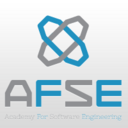This weekend finds NYC in between Internet Week (which I largely missed because of my London trip) and Disrupt NYC (which I will be at on and off this coming week). So the development of NYC as a startup hub is very much on my mind. And so I thought I'd post about the development of startup hubs.
This theory, which I like the call The Darwinian Evolution of Startup Hubs, is not new and I certainly didn't come up with it. But I think it is important for everyone to understand and so I'm going to blog about it.
If you study Silicon Valley, what you see is something that looks like a forest where trees grow tall, produce seeds that drop and start new trees, and eventually the older trees mature and stop growing or worse, die of disease and rot, but the new trees grow up even taller and stronger.
In my mental model of Silicon Valley, the first "tree" was Fairchild Semiconductor (founded in 1957) which begat Intel (founded 1968) which begat Apple (1976) and Oracle (1977), which begat Sun (1982), Silicon Graphics (1981), and Cisco (1984) which begat Siebel (1993) and Netscape (1994), which begat Yahoo! (1995) and eBay (1995), which begat Google (1998) and PayPal (1998), which begat YouTube (2005), Facebook (2004), and LinkedIn (2003) which begat Twitter (2006) and Zynga (2007), which begat Square (2010), Dropbox (2008), and many more.
If I left out important foundational companies of this mental model, please forgive me. That was not meant to be a comprehensive history. It was meant to illustrate how this evolutionary scenario plays out over time.
If you drill down a bit deeper, you see that the founders, investors and early employees generate a tremendous amount of wealth from these big successes. The later employees don't make as much wealth but they do learn a ton and make enough money that they don't need to work for someone else and so they strike out on their own and are often funded by the folks who made the big money in the prior startup. That's how the seed drops from the tree and starts a new tree growing. This continues on and on and on.
If you look at that history of silicon valley, you see that in the forty year history (since Intel's formation), there have been close to ten cycles of maturation and new company formation, and those cycles are getting shorter and the number of important foundational companies that are formed each cycle are increasing.
That makes total sense since this darwinian evolutionary model is non linear. One company begets two and those two companies beget four, and so on and so forth. Of course there are exogenous factors that also play out, like technology changes, financial market cycles, and the availability and cost of talent, and they impact how fast the startup hub economy expands.
This darwinian evolutionary model of startup hub development is not limited to silicon valley. We have seen it play out in other places, most notably Boston, and increasingly in NYC. It is also playing out in markets like Boulder Colorado and Austin Texas and many other parts of the US and many parts of the world.
When I look at a startup hub, I like to figure out what the "Fairchild Semiconductor" of that market was and when it got started. That tells me how far along the development cycle that startup hub is. In NYC, that was Doubleclick which was founded in 1996, the same year as my first venture capital firm, Flatiron Partners, which was founded on two premises, that the Internet would be big and that NYC would be an important locus of Internet innovation. We did not invest in Doubleclick (sadly) but we did invest in a lot of interesting Internet companies in NYC in the late 90s.
So NYC's startub ecosystem is 16 years old now. And we are two cycles in. The companies that are getting started and funded right now in NYC are akin to the Apple/Oracle stage of silicon valley. If you want to push, you could suggest that we are three cycles in now and the companies that are getting funded right now are akin to the Sun/Silicon Graphics/Cisco era. That might be right.
But in any case, NYC's tech sector is not anywhere close in terms of fertility to silicon valley. It will be there in another 25 to 30 years. And silicon valley will be even further along.
Unless, of course, something else happens.
The technological revolution that preceded the digital revolution was autos and airplanes. They were invented in the late 19th and early 20th centuries and the first commercial startups emerged in the first decade of the 20th century. The auto/airplane revolution played out until the 1960s/1970s. That suggests that a technology revolution lasts around 75 years.
The transistor was invented in the late 1940s and by 1958 we had commercial startups working on the technology. So if this revolution is anything like the last, the next big thing will be invented any day now and within a decade or two we will be on to the next technology revolution.
And in that case, all bets are off. Silicon Valley could become the next Detroit and who knows what will be the next Silicon Valley.
But of course, all of this is conjecture. History doesn't repeat itself. But it does rhyme. That comes from Samuel Clemens (aka Mark Twain). One of my favorite people ever.









